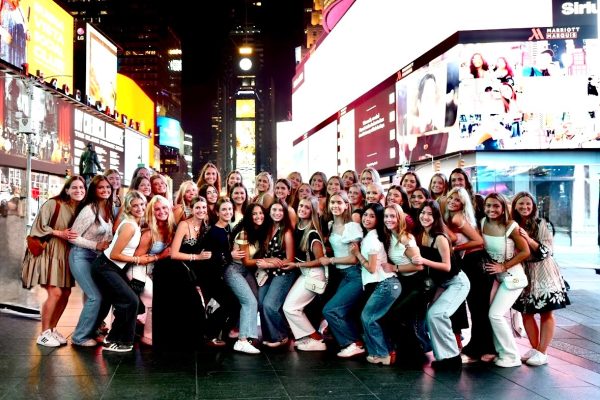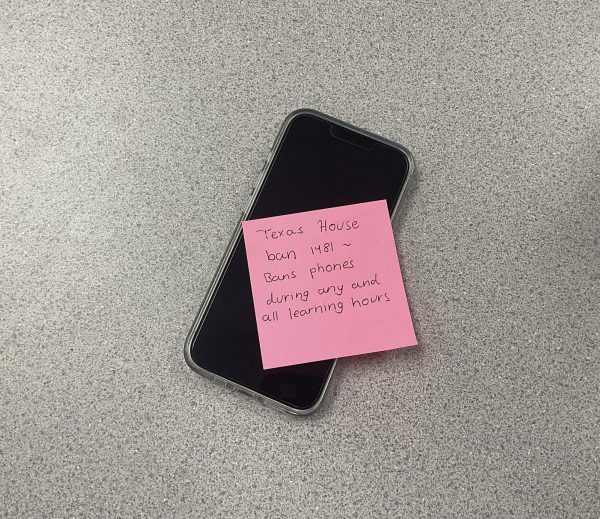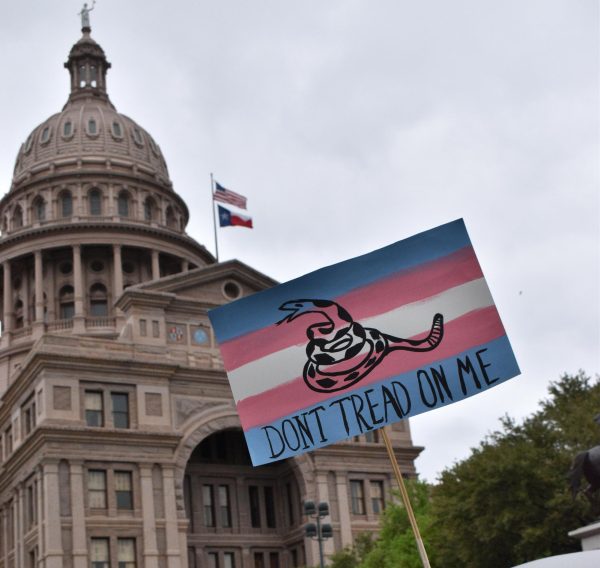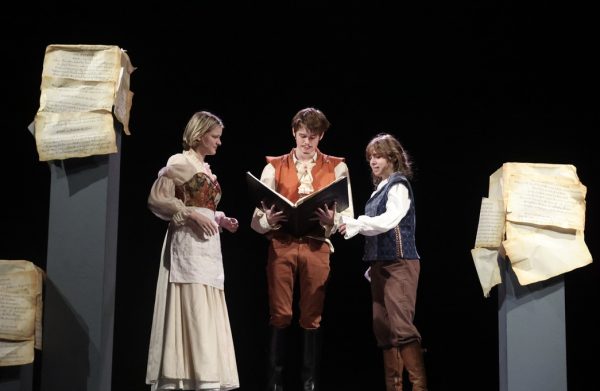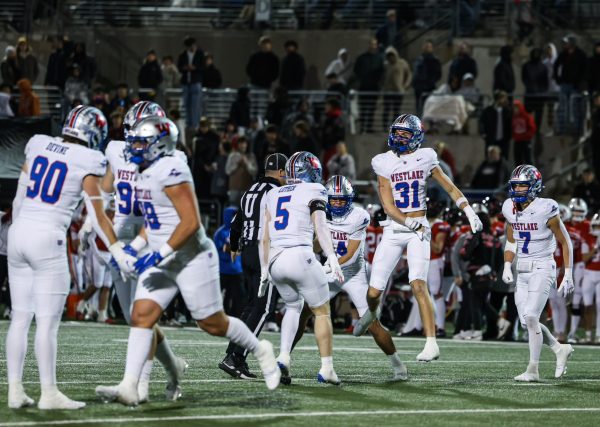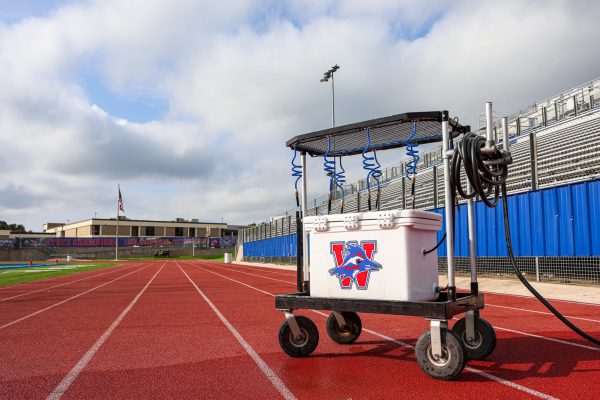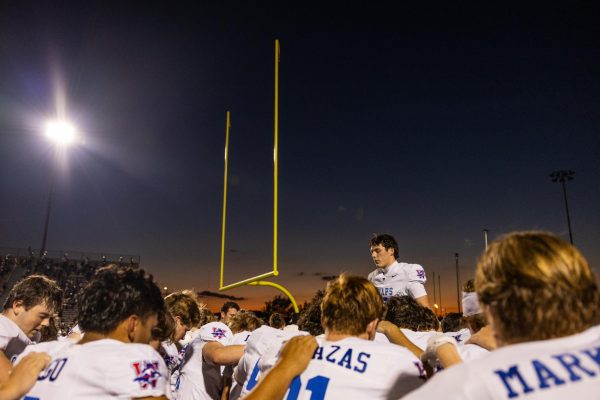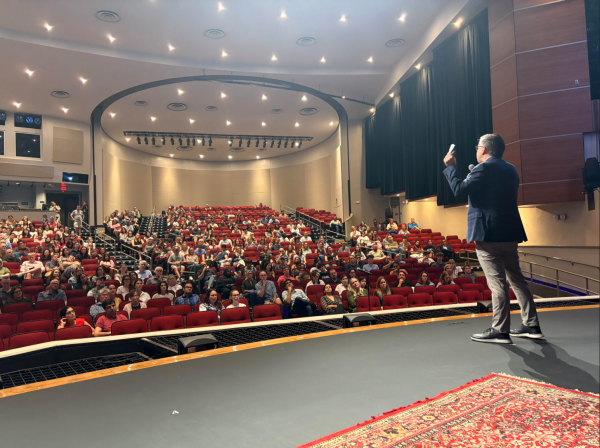Wendy Davis sits down with The Featherduster
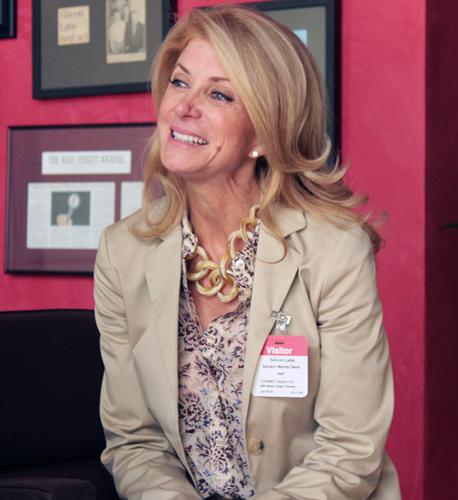
Wendy Davis, Texas State Senator, first came to national attention when she stood for twelve hours to filibuster a law that would close all abortions clinics in Texas. Although the bill was passed in a second session, Davis’ stand for women started a speculation about her plans to run for Texas Governor in 2014. Her statewide campaign kicked off early 2013. A few days before early voting opened on Oct. 20, Davis sat down with the Westlake Featherduster to answer a few questions.
Q: As a high school student I’m very interested in what you think about the future of the Texas school system such as your universal pre-K plan.
A: The first thing I would do is provide more funding for our schools. In 2011, the state cut 5.4 billion dollars in public school funding. I actually filibustered that funding cut. A lot of people know about the filibuster I did for women last summer, but most don’t know about that one. In the end, the governor had to call a second session, which resulted in it being passed. The consequence of that is a lot of our schools had to close, resulting in a ton of overcrowding in our classrooms. A lot of teachers lost their jobs, and my first priority is to make sure we restore that funding. Greg Abbott, my opponent, has been fighting in court to keep those budget cuts. That’s one of the major differences between us, and will definitely have an impact regarding whoever is elected.
Q: If you win the election, you’ll be the third female governor in Texas. What does that mean to you?
A: Right now I’m really proud to be even just running for governor as a woman, because throughout this campaign, I’ve met a lot of young women who are inspired to see me trying to achieve [the governorship], which makes me realize the importance of women in government. Women deserve to have role models to look up to, to see other women in positions of power so they know about everything they have the power to do. If I have the privilege of serving as only the third woman governor in Texas, then I will own that responsibility and spend a significant amount of time speaking to and mentoring women across the state, to play my part and help young women live out their dreams as I’ve been able to do.
Q: Women’s rights is an important issue to you, what has this fight meant to you?
A: I wanted to make sure women were safe. Before Row vs. Wade in 1973 passed into law, women were not safe in the healthcare arena when it came to reproductive rights, to the right to their bodies. It then became not only legal, but safe for women to own their own bodies and decide what they wanted to do for themselves. The law [I filibustered] that was passed actually resulted in all of our clinics in Texas closing across the state, except for 8. Recently however, the Supreme Court lifted the implementation of the law so that the clinics could reopen, at least while the law is on appeal. What we saw right away, was that women had new alternatives, safe alternatives. They were no longer panicked about what to do, leaving the state to fix the problem, and worse. When you take away choices that should be theirs alone to make, women’s health is placed in danger. That’s why I felt it was so important to fight for women’s rights, and the passage of that bill.

